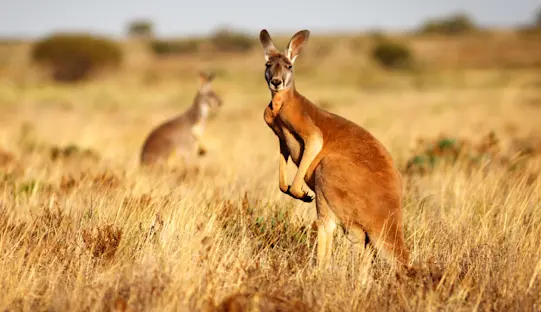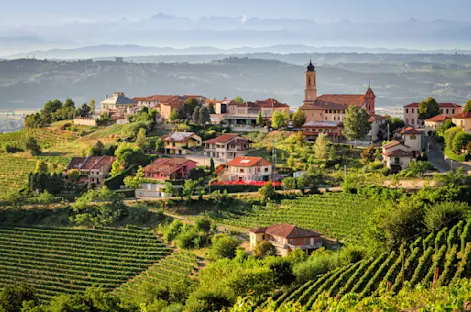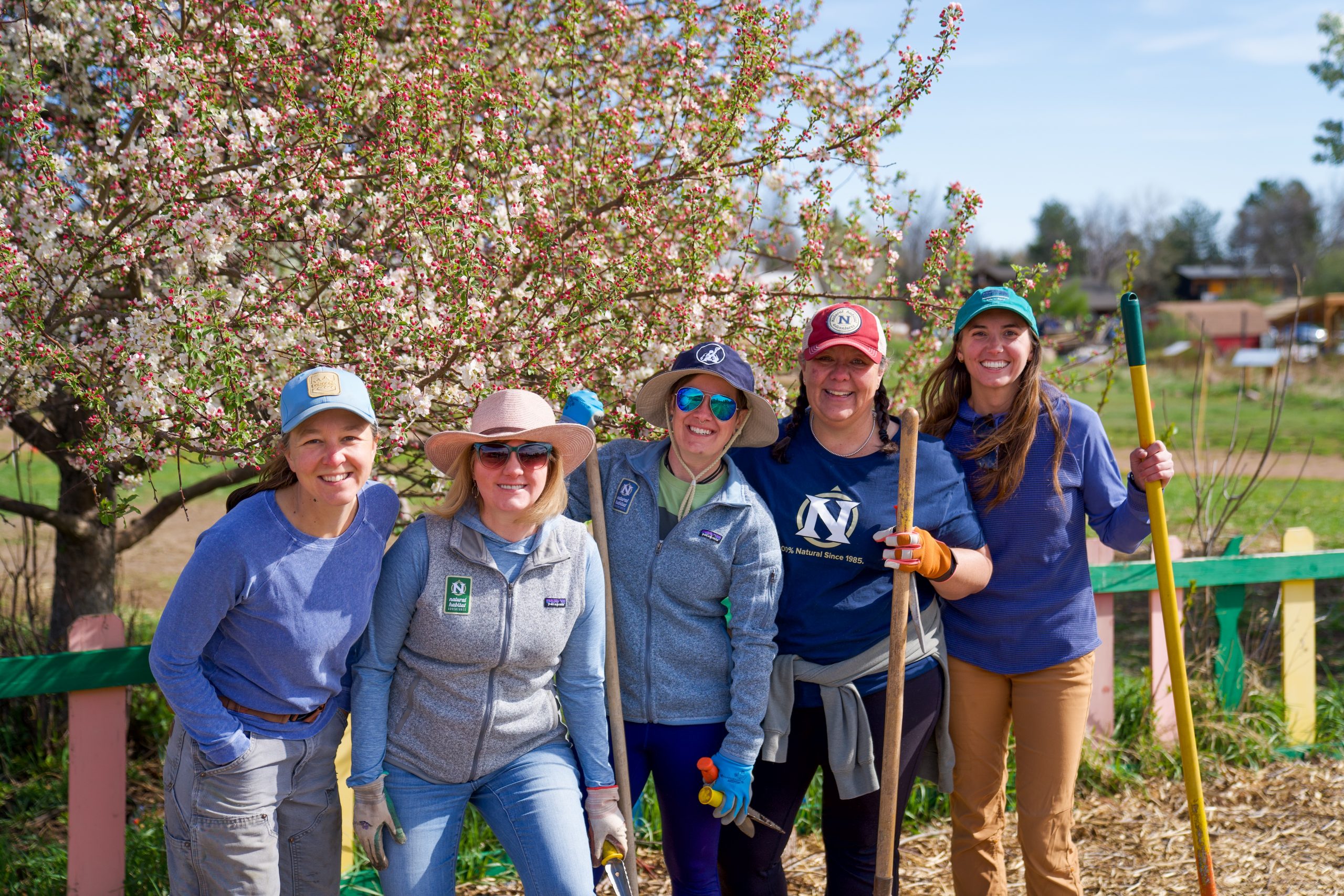Each year Nat Hab Philanthropy supports grassroots initiatives that connect conservation with community well-being. In 2025, our first funding cycle of grants spanned continents—from the rainforests of Australia to the highlands of East Greenland—funding projects that restore habitats, advance education, empower women, and strengthen local stewardship.
These efforts embody the shared mission of Nat Hab and World Wildlife Fund: protecting the planet’s most extraordinary places while supporting the people who call them home.
“Nat Hab Philanthropy and the amazing projects we fund around the world are a major ‘why’ behind what we do as a company. Conservation travel means so many things, and they’re all fantastic, but in this case, the ability to fund grassroots projects doing incredible things for nature, communities and wildlife, supported by the proceeds from our travel programs, is one of my favorite parts about what and how we do things at Nat Hab,” says Chief Sustainability Officer Court Whelan.
Here are 14 new Nat Hab Philanthropy Projects of 2025—and stay tuned to learn about the projects in our second funding cycle of 2025!
Tolga Bat Rescue: A Safe Return for Flying Foxes
Funding Provided: $2,000
Location: Atherton, Far North Queensland, Australia
Partner: Tolga Bat Rescue and Research
Tolga Bat Rescue rehabilitates hundreds of orphaned spectacled flying foxes each year—an endangered species vital to Australia’s rainforests. This grant funds construction of a new release cage where young bats can strengthen flight muscles before returning to the wild.
The soft-release method greatly increases survival rates and helps restore balance to tropical ecosystems dependent on these pollinators.

Bosque Guardián Lodge: Saving Native Bees, Sustaining Forest Communities
Funding Provided: $2,500
Location: Tiraco Valley, San Martín Region, Peruvian Amazon
Partner: Bosque Guardián Lodge
In the cloud forests of Peru’s Cordillera Escalera Reserve, Bosque Guardián Lodge champions the conservation of Tetragonisca angustula, a native stingless bee revered for its medicinal honey.
Funding supports the construction of 30 wooden hives and training for 15 local women in sustainable meliponiculture—an alternative to deforestation and cattle ranching. The project preserves pollinators, fosters women’s leadership and strengthens traditional ecological knowledge.
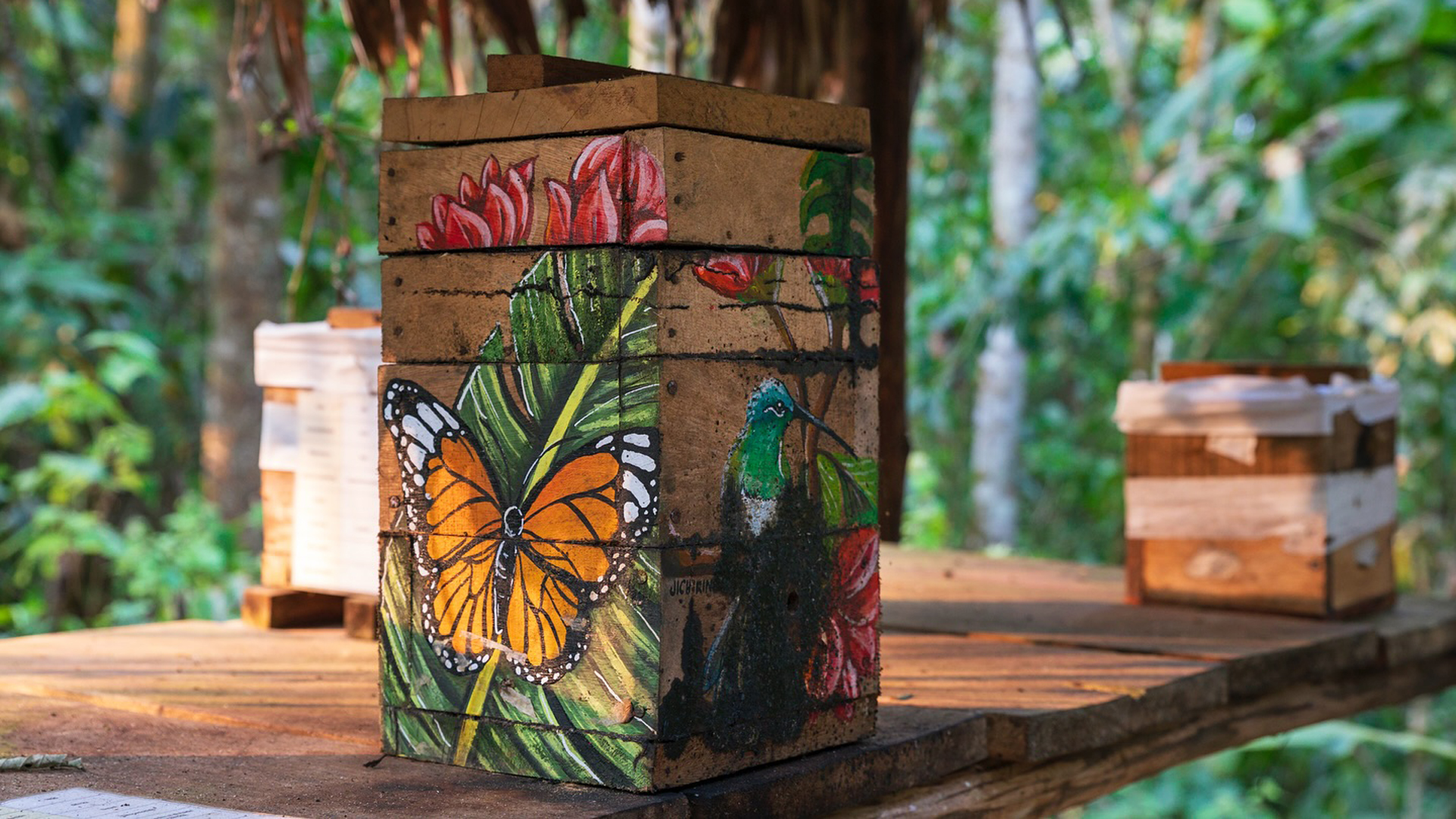
© Bosque Guardián Lodge
Ambiomas and Ejido Los Remedios: Biodiversity Monitoring for Responsible Tourism
Funding Provided: $2,500
Location: Sierra Chincua Sanctuary, Monarch Butterfly Biosphere Reserve, Mexico
Partner: Ambiomas Acciones y Respuestas Adaptativas
To diversify tourism beyond monarch season, Ejido Los Remedios is developing year-round biodiversity experiences rooted in conservation science.
Funding supports a three-month monitoring project using camera traps and citizen science tools like iNaturalist and eBird to document flora and fauna. Findings will inform new eco-tours and guidebooks, strengthening local knowledge and sustainable tourism practices.
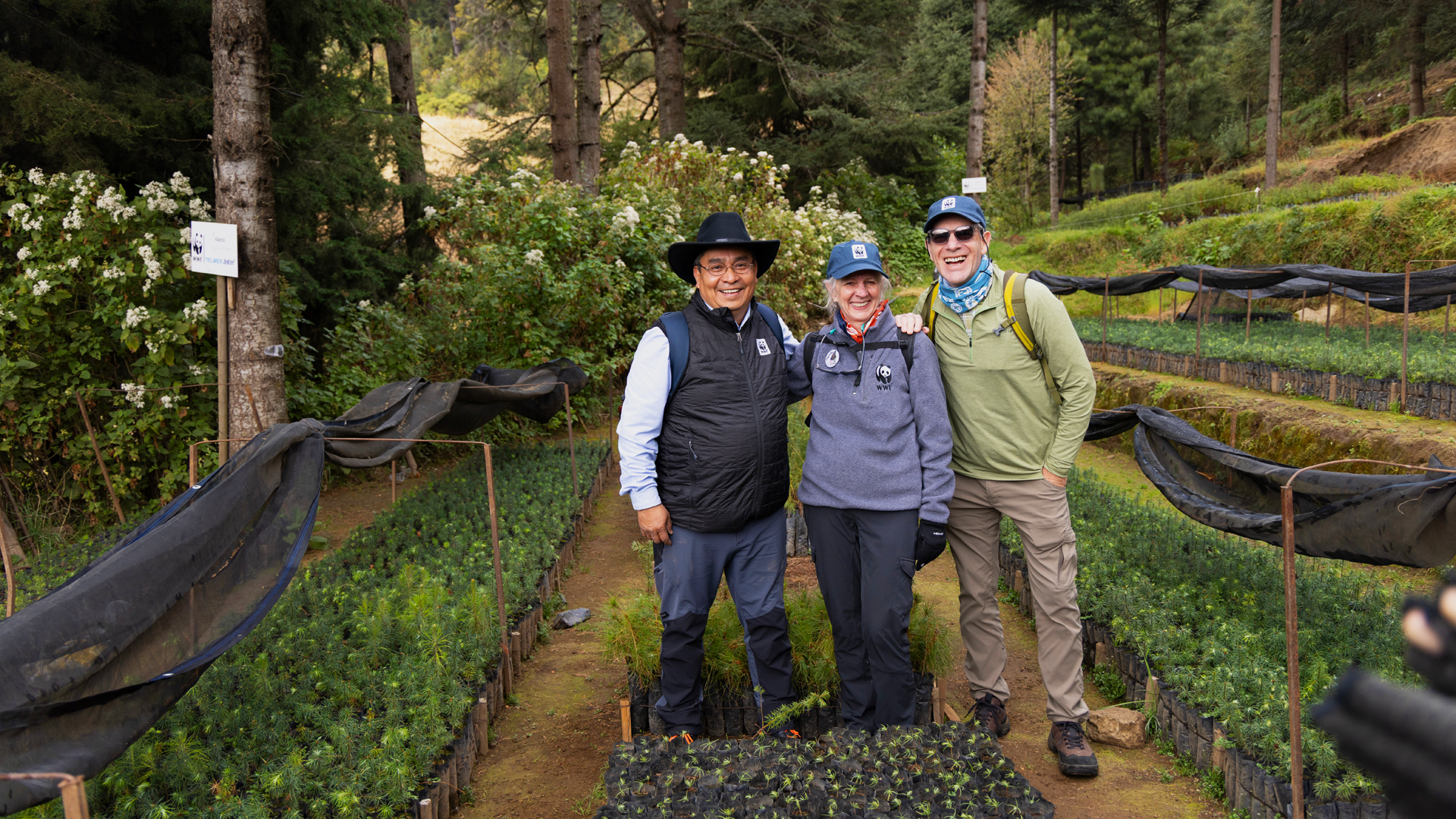
© Nat Hab Staff Court Whelan
Empowering Women Through Birding in the Peruvian Amazon
Funding Provided: $2,500
Location: Pacaya Samiria National Reserve, Peru
Partner: Delfin Amazon Cruises
In partnership with Indigenous communities, Delfin Amazon is launching a program to train women as birding guides in one of the world’s most biodiverse ecosystems.
Funding supports training, educational materials and equipment, helping participants learn avian ecology, guiding skills and conservation education. The program fosters sustainable livelihoods while reducing reliance on extractive practices and protecting both wildlife and culture.
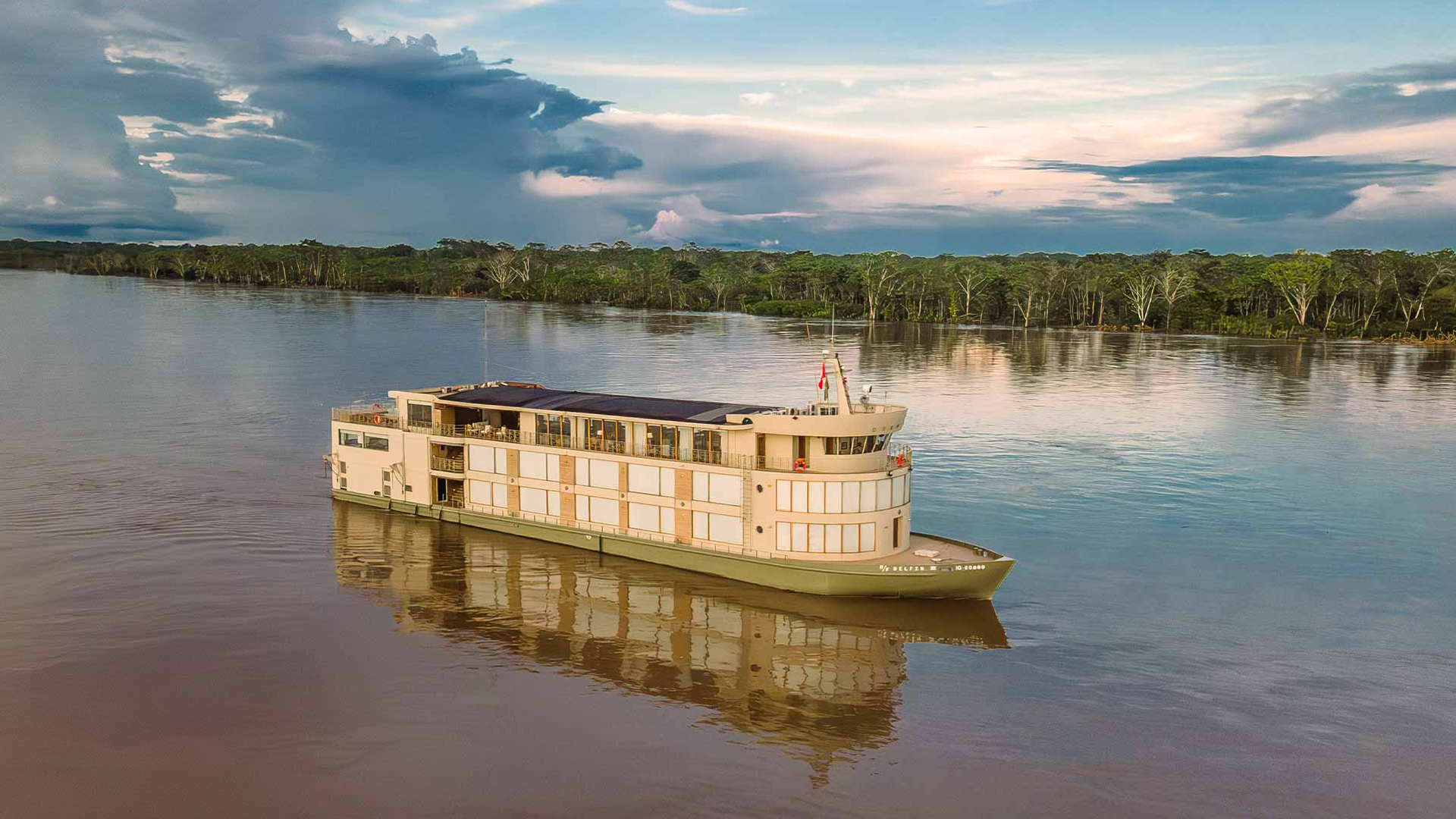
© Delfin III
FortWhyte Alive: Arctic Science Day Inspires Future Environmental Leaders
Funding Provided: $2,500
Location: Winnipeg, Manitoba, Canada
Partner: FortWhyte Alive
Arctic Science Day brings climate research to life for middle and high school students through hands-on learning led by scientists from the University of Manitoba. This free, two-day event fosters curiosity and understanding of Arctic systems and climate change.
Funding supports materials, equipment, honoraria and staffing—ensuring accessibility for all students and inspiring the next generation of environmental leaders.
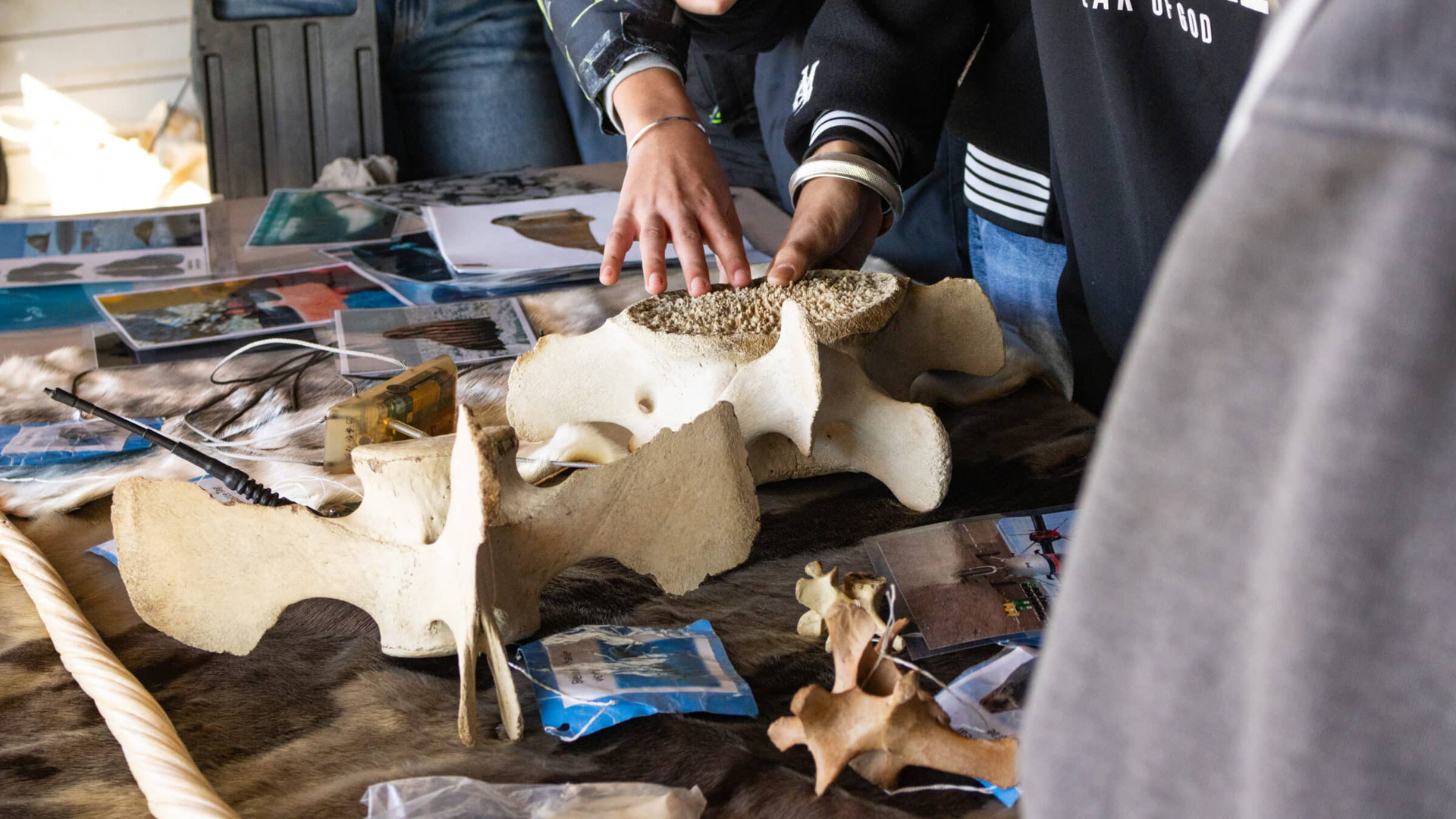
© FortWhyte Alive
Forests for Monarchs: Reforesting Habitat, Restoring Hope
Funding Provided: $2,500
Location: Michoacan, Mexico
Partner: Forests for Monarchs
Since 1997, Forests for Monarchs has planted more than 13.5 million trees to restore degraded land in the Monarch Butterfly Biosphere Reserve. With monarch numbers still in steep decline, this work remains critical.
This year’s grant supports planting 2,500 native trees in sanctuary communities like Senguio and Ocampo. The community forestry model engages Indigenous groups and local ejidos to ensure long-term stewardship and sustainable livelihoods—strengthening forest health and monarch recovery.

© Forests for Monarchs
Open Door Bird Sanctuary: Birds Are for Everyone
Funding Provided: $1,000
Location: Door County, Wisconsin, USA
Partner: Open Door Bird Sanctuary
Through its Birds Are for Everyone initiative, Open Door Bird Sanctuary makes wildlife education accessible to schools, senior centers and community groups that might otherwise miss out.
This grant helps subsidize outreach programs—from field trips to off-site raptor presentations—bringing people of all ages closer to the natural world and inspiring compassion for birds of prey.

Mask Up Uganda: Safeguarding Gorillas Through Health Protocols
Funding Provided: $2,500
Location: Bwindi Impenetrable Forest, Uganda
Partner: In collaboration with CTPH and Gorilla Doctors
To protect Uganda’s endangered mountain gorillas, Mask Up Uganda supplies high-quality face masks and health training for rangers, guides and communities at all five gorilla tracking sites.
The initiative—led by Conservation Through Public Health and Gorilla Doctors—reduces the risk of disease transmission from humans to great apes. The 2025 funding transition supports Uganda Wildlife Authority as it prepares to assume full management by 2026 following successful regional models.
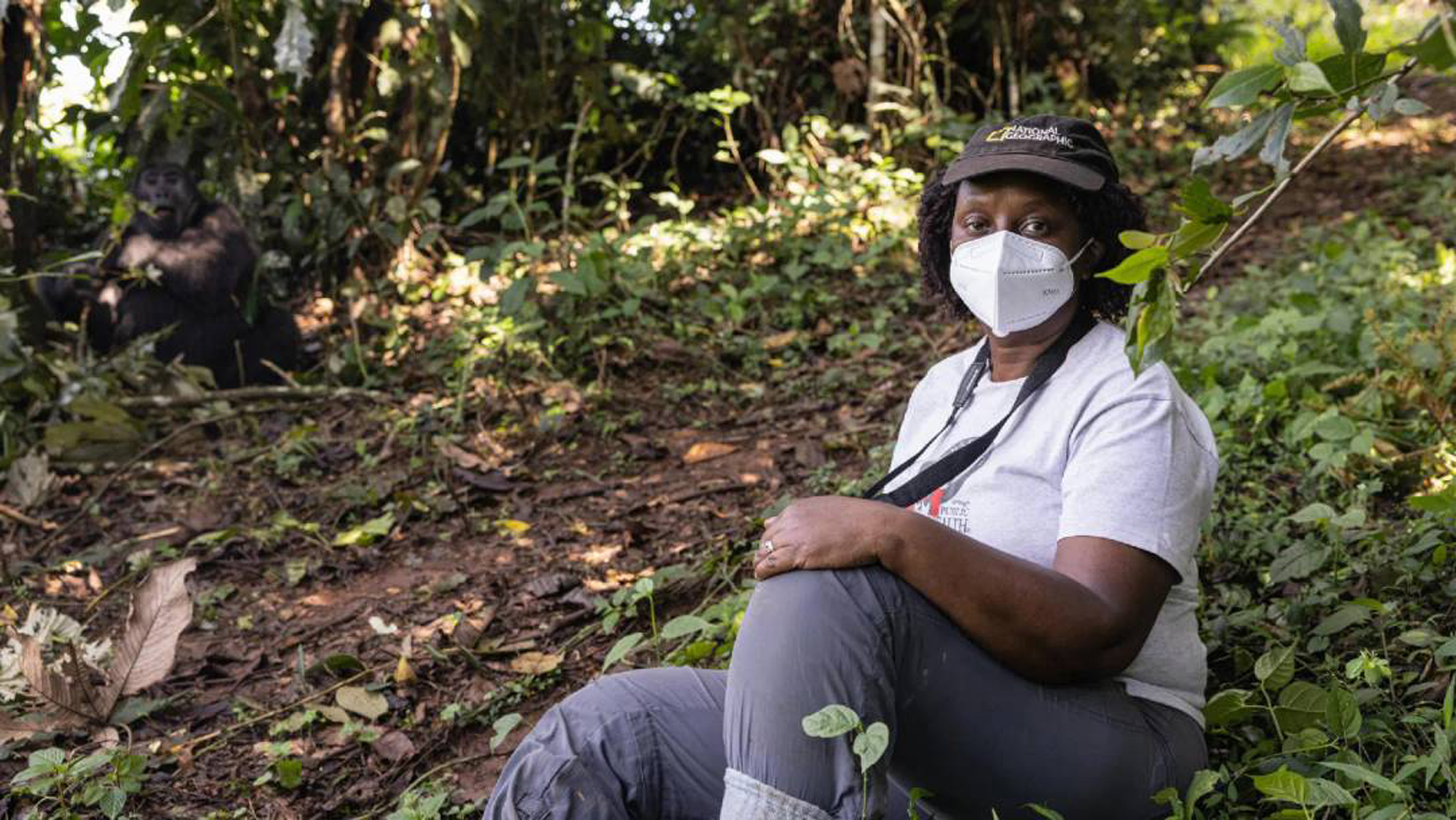
© Conservation Through Public Health
Alaska Wildlife Alliance: Wildlife Wednesday Virtual Series
Funding Provided: $2,000
Location: Online (based in Alaska, USA)
Partner: Alaska Wildlife Alliance
Each month from October to April, Alaska Wildlife Alliance connects audiences with experts through Wildlife Wednesday, a free virtual lecture series exploring conservation, science and storytelling.
This grant supports event planning, hosting, communications and digital outreach, helping bring wildlife education to thousands of viewers worldwide while strengthening advocacy for Alaska’s ecosystems.
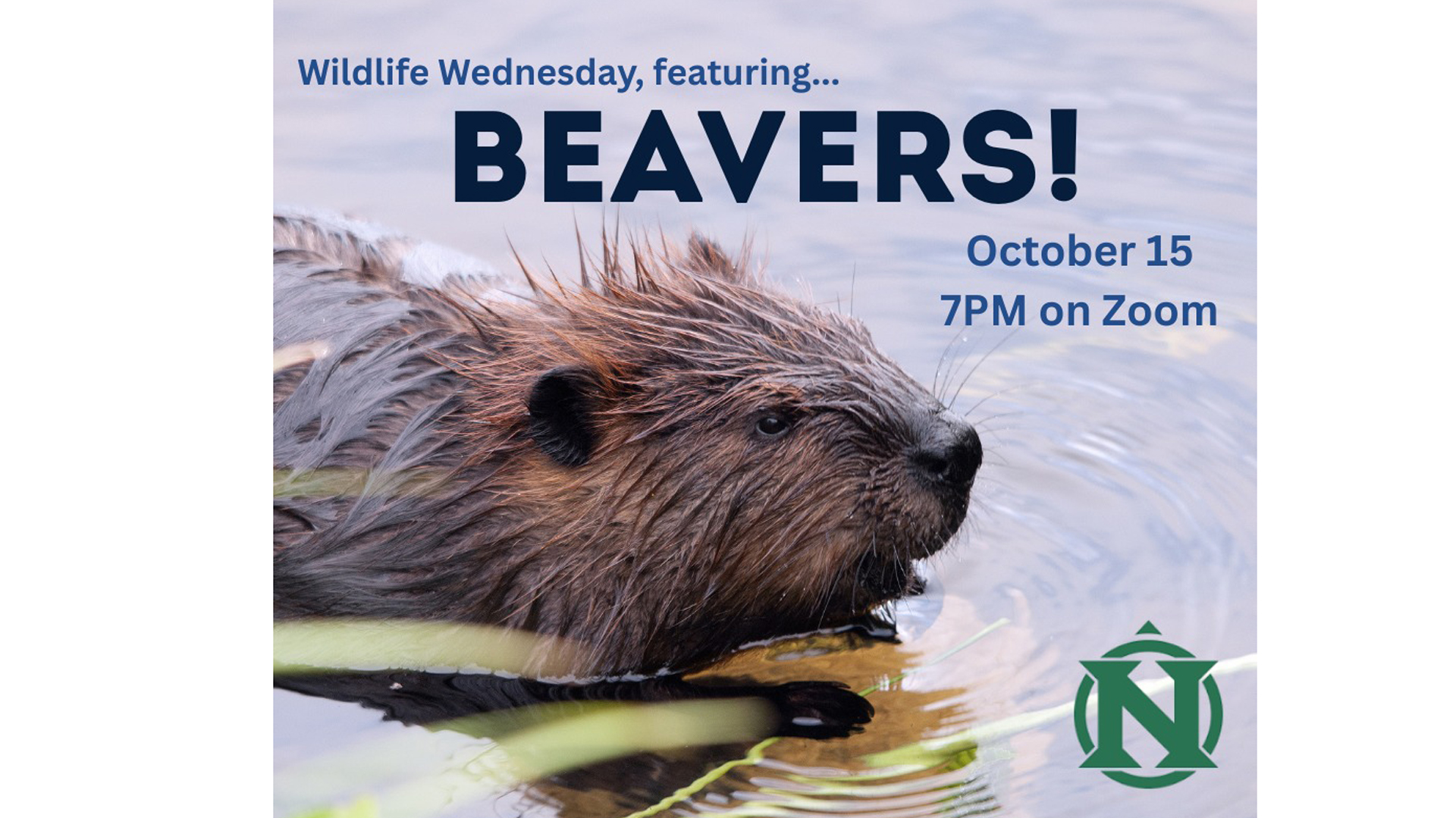
© Alaska Wildlife Alliance
Wildlife Madagascar: Reforesting Namoroka National Park
Funding Provided: $2,500
Location: Namoroka National Park, Madagascar
Partner: Wildlife Madagascar
Building on success in Anjanaharibe-Sud Special Reserve, Wildlife Madagascar is expanding its conservation work to Namoroka National Park—a remote, biodiversity-rich area sheltering ten lemur species, over 100 bird species and dozens of reptiles and amphibians.
To restore this fragmented landscape, Wildlife Madagascar is launching a hands-on reforestation initiative led by a full-time specialist who will collect seeds (even from lemur droppings), germinate saplings and coordinate bi-monthly tree-planting events with local residents.
The grant provides essential field gear—boots, rainwear, uniform and a tent—for extended seed-collecting missions. These efforts will reconnect forest corridors, ensure gene flow among wildlife populations and safeguard the park’s ecological resilience.
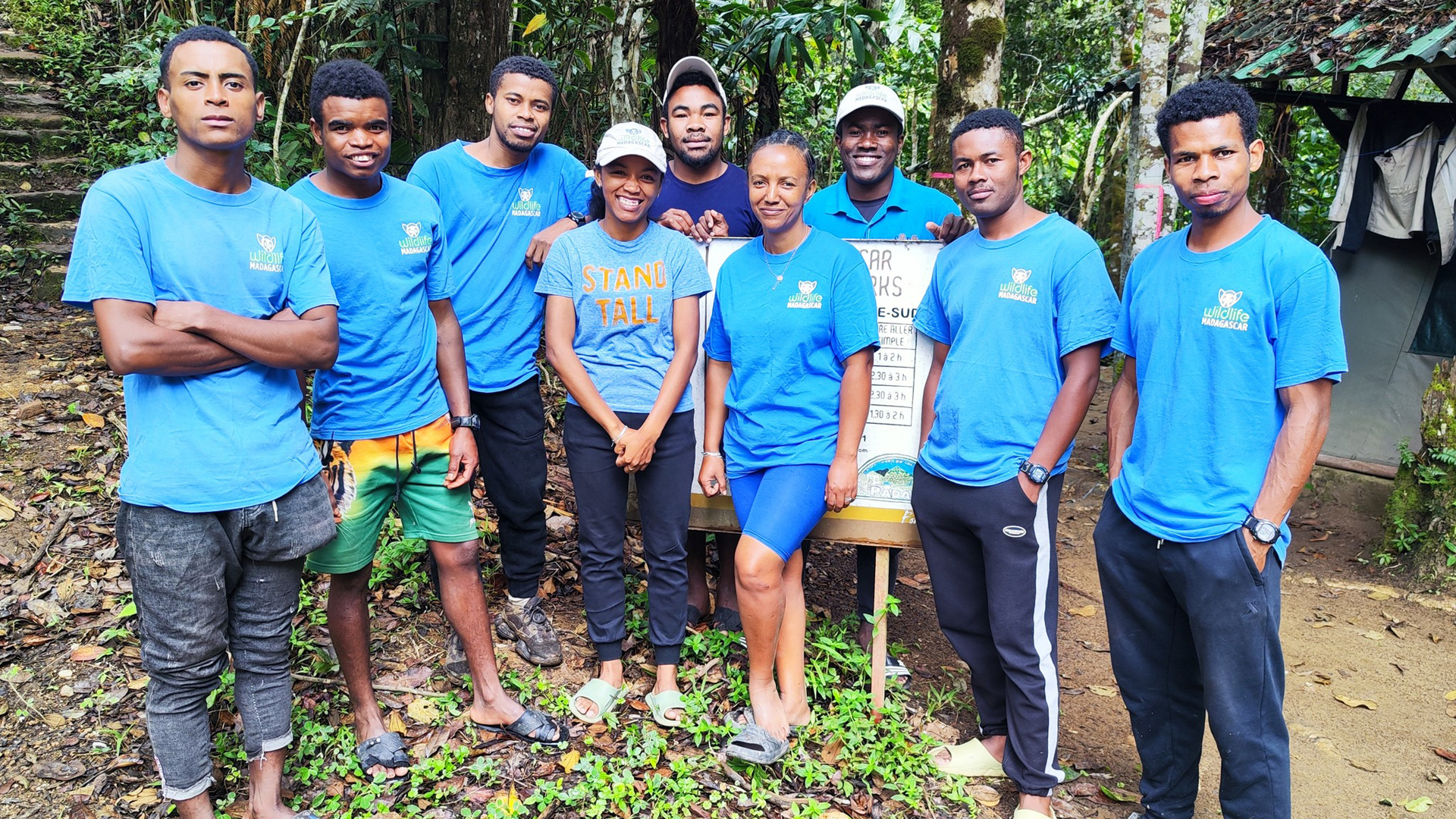
© Wildlife Madagascar
Gyekrum Lambo Primary School: Restoring a Classroom for Learning
Funding Provided: $2,500
Location: Karatu, Arusha, Tanzania
Partner: Gyekrum Lambo Primary School
This project revitalizes an unused classroom, turning it into a safe, welcoming space for students. Funding covers new flooring, glass windows, fresh paint and labor costs—ensuring children can learn in comfort and security.
By reopening this classroom, the school expands its capacity to serve a growing student body and improves education and opportunity for the Karatu community.
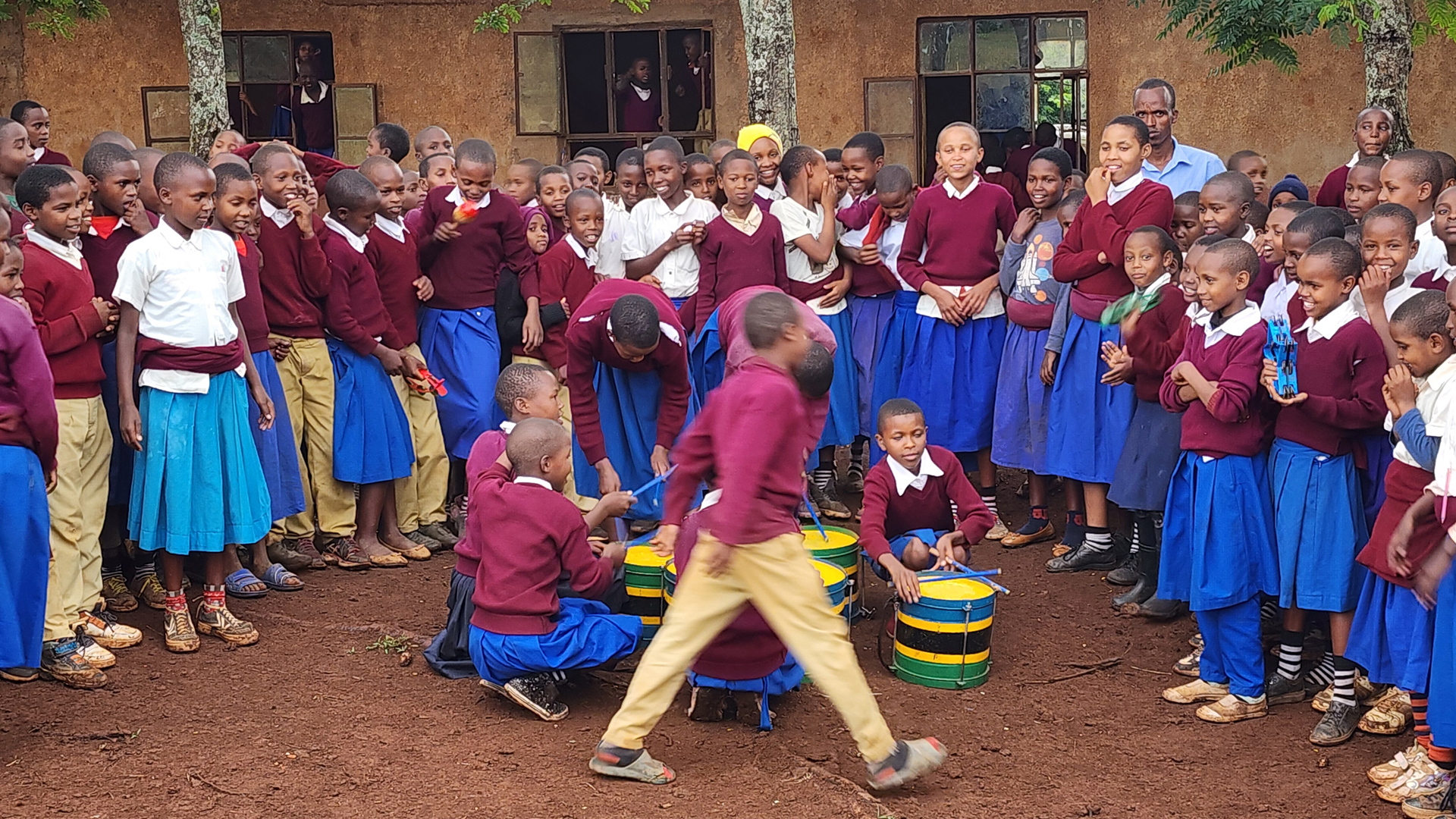
© Nat Hab Guest Diann Jinks
Bwindi Plus Menstrual Health Project: Dignity Through Hygiene and Education
Funding Provided: $2,500
Location: Bwindi, Uganda
Partner: Bwindi Plus Orphanage School
In Uganda’s Bwindi region, many girls face barriers to education due to limited access to menstrual products and persistent social stigma. This project addresses both through training and empowerment.
Funding supports the purchase of an overlock machine, cloth materials and a tailoring instructor to teach girls and women to make reusable pads. School workshops on menstrual health help reduce stigma and improve confidence, leading to higher school attendance and community awareness.
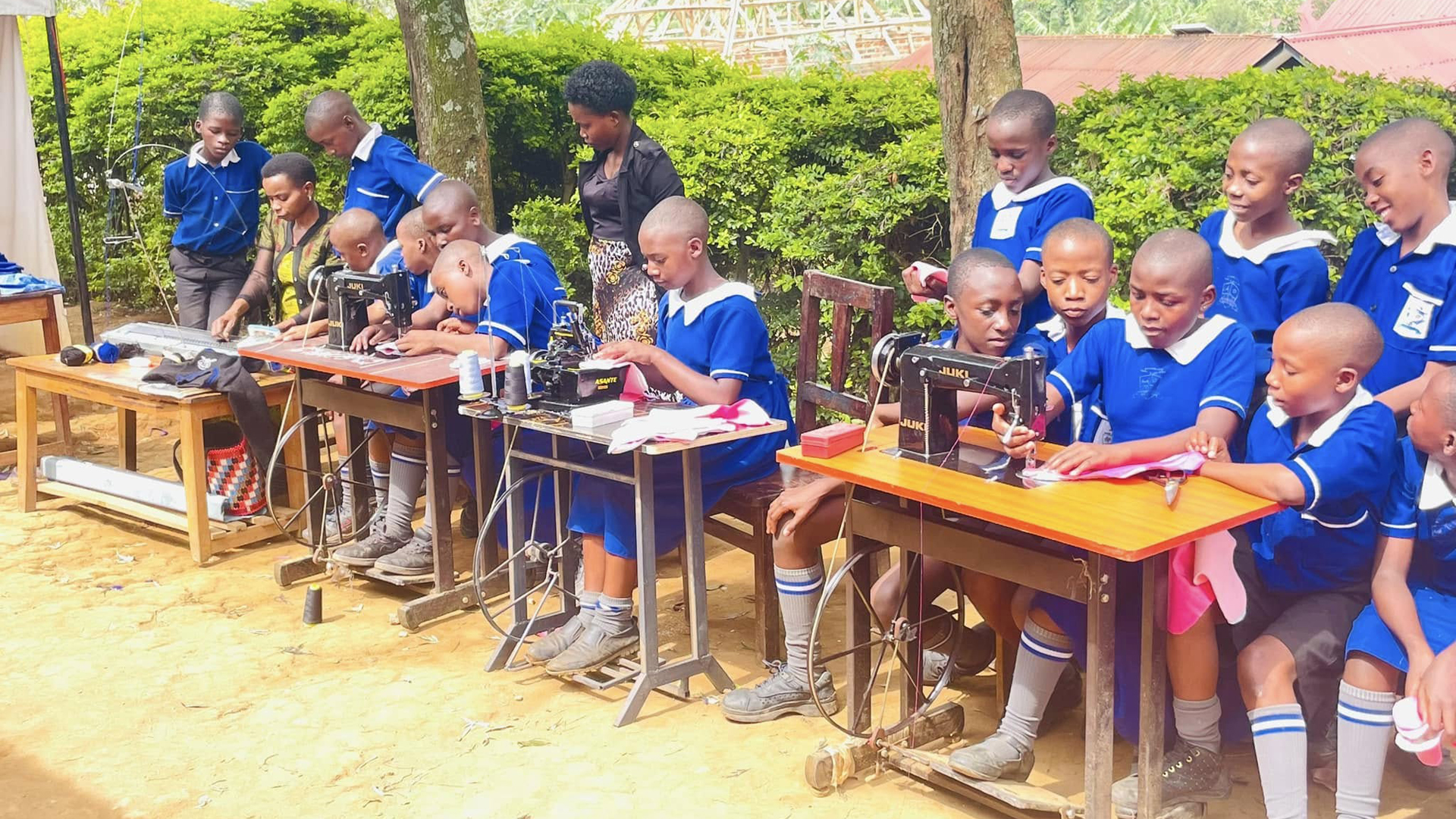
© Bwindi Plus Orphanage School
Community Library for the Galapagos and the World
Funding Provided: $2,500
Location: Galapagos Islands, Ecuador
Partner: AGIPA (Galapagos National Park Interpretive Guides Association)
The Agipa Community Library—the only library in the Galapagos—serves as a vital center for education and creativity. This non-profit, guide-led initiative uses art and literacy to connect young readers with conservation.
Funding supports ten youth workshops in 2025, engaging children with the IUCN Red List through reading, art and storytelling. Each session inspires curiosity and conservation-minded thinking among the next generation of island stewards.
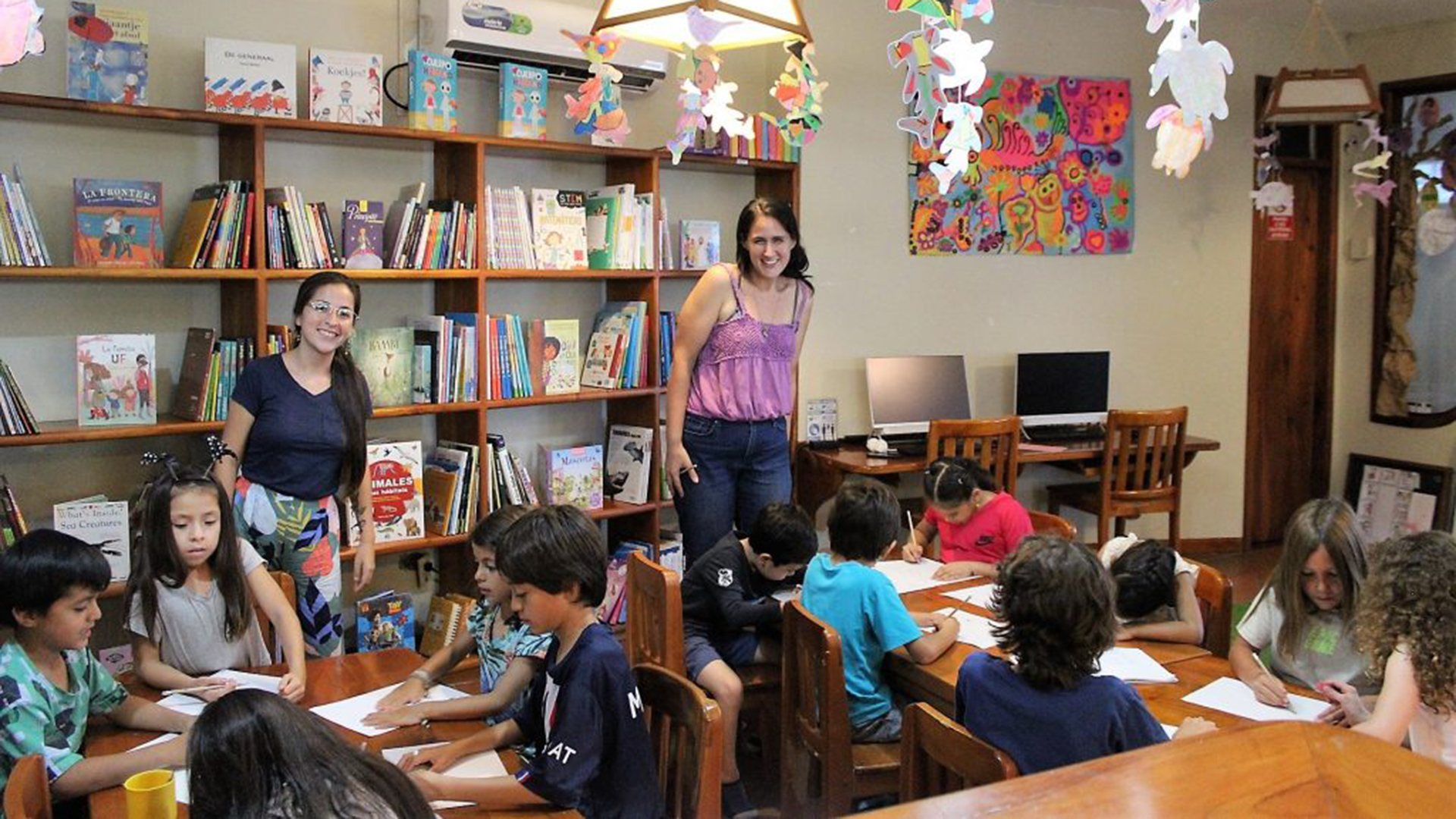
Tasiilaq Community Cookbook: Celebrating Greenland’s Local Flavors
Funding Provided: $2,500
Location: Tasiilaq, East Greenland
Partner: Community-led initiative
The Tasiilaq Community Cookbook preserves Greenlandic food traditions through recipes gathered from local chefs, home cooks and families.
With Nat Hab’s support, this project funds research, photography, community tastings, printing and distribution. The cookbook will serve as both a cultural archive and educational tool, encouraging sustainable eating and local pride.
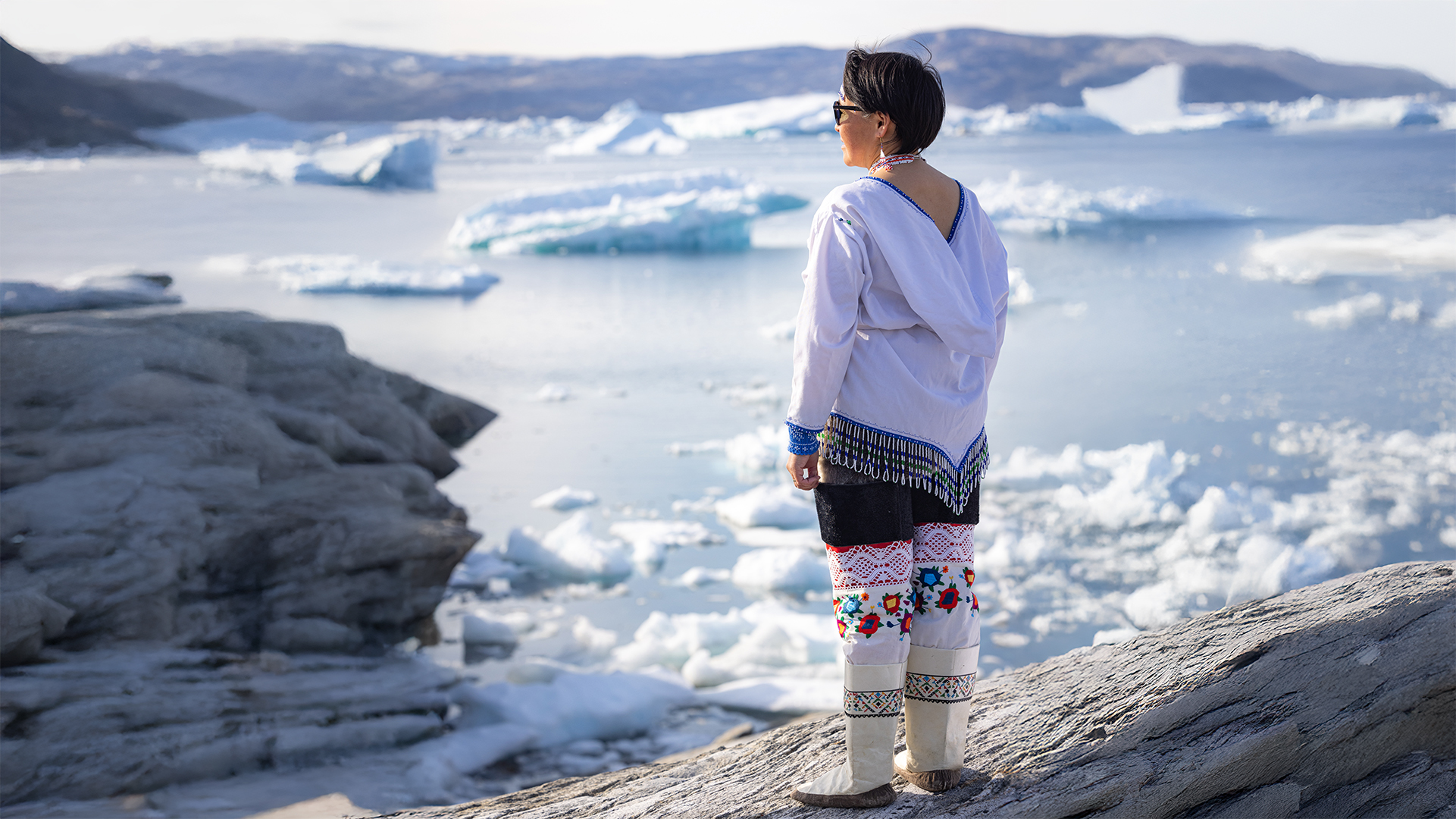
East Greenland Arctic Adventure © Nat Hab Expedition Leader Lianne Thompson
From tree nurseries in Madagascar to bee hives in the Amazon, these 2025 projects show how small grants create lasting impact. Each initiative reflects a shared commitment to protect wild places, empower communities and ensure conservation thrives alongside human well-being.
Through Nat Hab Philanthropy, every traveler becomes part of this story of restoration, resilience and hope.











